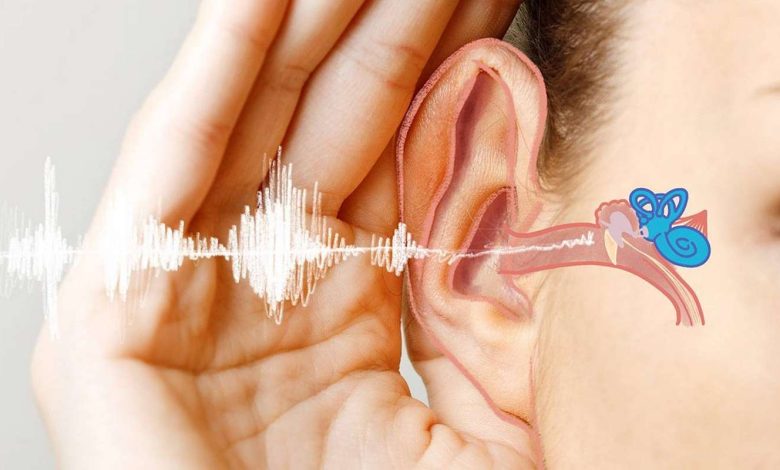Tinnitus, noise in ears: what is this, causes, symptoms, diagnostics, treatment, prevention

Ringing in the Ears (Ringing)
What is ringing or noise in the ears?
Tinnitus – feeling abnormal noise in the head or ears without an external source of sound. May have high-pitched sounds, ringing, clicking or buzzing. Pulsating tinnitus is caused by the influx of blood, which occurs as a result of heart.
The ringing and ringing in the ears – causes
Tinnitus can cause:
- Hearing damage as a result of exposure to noise;
- Hearing loss;
- Damage to the auditory system.
Sometimes tinnitus is no longer than a few minutes found in healthy people, especially after exposure to loud noises.
Risk Factors and ringing noise in the ears
Factors, that may increase the risk of tinnitus include:
- Professions or activities associated with exposure to loud sounds;
- Wax or a foreign body in the ear canal;
- Stress;
- Fatigue;
- Some medications, such as aspirin, antibiotics, diuretics;
- Toxic substances, such as heavy metals, carbon monoxide and alcohol;
- Some diseases, such as:
- Ear infection;
- Meniere's Disease;
- Allergies;
- Low or high blood pressure;
- Diabetes;
- Depression;
- Alarm;
- Tumors;
- Thyroid problems;
- The disorder of the temporomandibular joint (TMJ);
- Diseases of the blood vessels, such as aneurysm, fistula or arterial disease are associated with the appearance of pulsating tinnitus;
- Fluid in the ear;
- Rupture of the membrane in the ear;
- Head or neck injury.
Symptoms and ringing noise in the ears
The sensations of tinnitus may have the following:
- Ringing, roar, buzz, whistle, or hissing;
- Recurring, continuous or pulsating sounds;
- Extraneous sounds are constant or varying intensity;
- There may be one or more audible tones;
- More annoying symptoms at night or when there is a patient is not distracted by other things;
- Feeling Events, taking place inside the body, such, as a surge of blood or muscle contractions.
Sometimes tinnitus is accompanied by hearing loss and vertigo.
Ringing or noise in the ears – when to see a doctor?
Consult your doctor, If tinnitus is often felt, especially if it is:
- It is associated with hearing loss, dizziness, personality changes, speech or causes weakness in any part of the body;
- It starts after the head or neck injury;
- Connected with medication;
- Is pulsating;
- Associated with pain in the ear, fever, nausea or vomiting.
Diagnosis and ringing noise in the ears
The doctor will ask about your symptoms and medical history, and perform a physical examination. Particular attention will be paid to the head, neck and ears.
You will be asked questions about:
- Feeling, observed before, during and after an episode of tinnitus;
- Factors, that increase or decrease the sensation of tinnitus;
- Medications, that you take;
- Stories injuries.
The doctor will examine the auditory canal and eardrum using an instrument with a light source, which is inserted into the outer opening of the ear. Used medical imaging techniques, such as computed tomography or magnetic resonance imaging, to prevent serious diseases.
Hearing test includes:
- Tympanograms;
- Auditory brainstem evoked potentials;
- Electrocochleography – to check for Meniere's disease.
Treatment and ringing noise in the ears
Treatment of ringing in the ears and noise depends on the cause, causes symptoms. The most common treatments for ringing and tinnitus:
- Wearing a specially made tires, to reduce the impact of disorders of the temporomandibular joint on hearing;
- Taking antibiotics to treat sinus infections or ear;
- Removal of sulfur from the ear canal;
- Suspending the reception or modification of drugs, to see, passes if tinnitus.
Treatment also aims to eliminate or reduce bothersome sensations. Treatment ringing and tinnitus may include:
Medication to treat the ringing and tinnitus
While there are no drugs, effective in treating tinnitus. The doctor may use certain drugs, to relieve symptoms. These may include anti-depressants, sedatives.
If you have Meniere's disease, your doctor may prescribe medications to treat the disease.
Mechanical devices for the treatment of ringing in the ears and noise
Devices include:
- Hearing aid – sometimes relieves tinnitus and improves hearing in some people with hearing loss;
- Maskirovanie bells in Usaha – device, which produces white noise of low intensity will help reduce the feeling of internal, and block outside noise.
Lifestyle and self-help measures for the treatment and ringing noise in the ears
Measures, in some cases, allow to get rid of or reduce tinnitus, They include:
- Stress management and relaxation training in;
- Biofeedback;
- Repetitive transcranial magnetic stimulation;
- Kognitivnaya povedencheskaya therapy;
- Joining a support group;
- Avoid reasons, that cause or worsen tinnitus sensation. These reasons may be:
- Loud noise;
- Alcohol;
- Smoking;
- Consumption of large amounts of salt;
- Caffeine;
- Exercise regularly to improve blood circulation;
- Take time, to relax and sleep;
- Listening to the radio or a special apparatus for the generation of white noise 30 minutes before bedtime can help reduce the feeling of ringing in the ears and the noise at night.
The operation to treat ringing and tinnitus
Surgery can help eliminate certain causes of tinnitus:
- Noise in ears, It causes swelling, often disappears after its removal;
- Deviations in the development of blood vessels, which lead to tinnitus, They can sometimes be eliminated after surgery;
- The operation may also be a treatment option for patients with Meniere's disease, but it is usually performed only to eliminate dizziness.
Prevention and ringing noise in the ears
To reduce the probability of occurrence of tinnitus:
- Avoid exposure to excessive noise;
- Wear earplugs in a very noisy;
- Wear headphones while mowing the lawn;
- Learn stress management and relaxation techniques;
- It is necessary to restrict the use of medicines, that hearing impairment.
